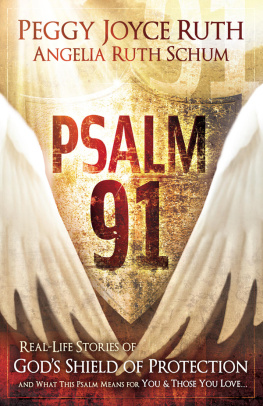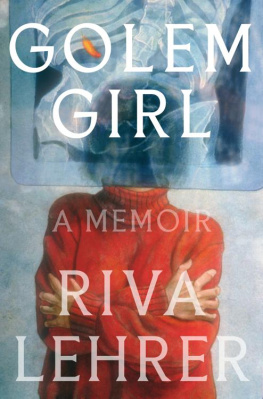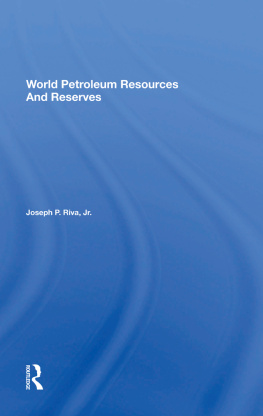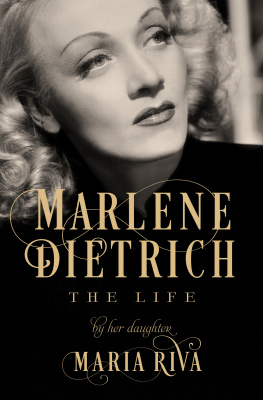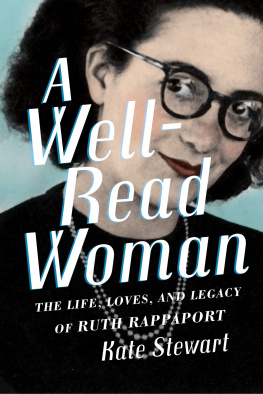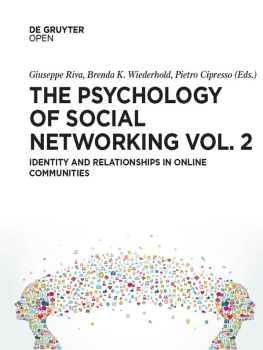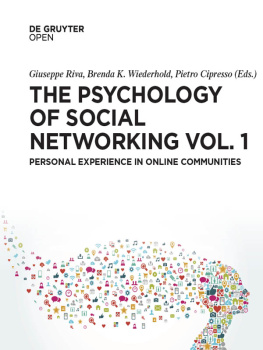First Aladdin Paperbacks edition March 2000
Text copyright 1988 by Ruth Minsky Sender
Simon Pulse
An imprint of Simon & Schuster
Childrens Publishing Division
1230 Avenue of the Americas
New York, NY 10020
www.SimonandSchuster.com
All rights reserved, including the right of reproduction in whole or in part in any form.
Design by Corinne Allen
The text for this book was set in Cochin.
The Library of Congress has cataloged the hardcover edition as follows:
Sender, Ruth Minsky. To Life / Ruth Minsky Sender. 1st ed. p. cm.
Summary: A Holocaust survivor recounts her liberation from a Nazi concentration camp, search for surviving family members, and long and difficult ordeal of trying to immigrate with her husband and two children to America.
ISBN 0-02-781831-4 (hc.)
1. Sender, Ruth MinskyJuvenile literature. 2. Holocaust survivorsGermany (West) BiographyJuvenile literature. 3. Refugees, JewishGermany (West)BiographyJuvenile literature 4. Jews United StatesBiography.]
I. Title.
D804.3.S45 1988 940.53'15039240-dc
[B] [92] 88-9312 CIP AC
ISBN 0-689-83282-6 (pbk.)
ISBN 13: 978-1-4814-4234-3 (ebook)
Contents
To all those who perished but live in our hearts, a memorial
To all those who found the strength to rise from the ashes and build a new life, a tribute
To my family, for making life worth living
one
I T IS F EBRUARY 2, 1950.
Look, Laibele! Look! The Statue of Liberty! My voice quivering, my heart singing with joy, I press my little boys face closer to the porthole of the swaying ship. The long, hard journey, the stormy sea are suddenly forgotten as the shores of freedom reach out to us.
Laibeles eyes glow with excitement as they dance from my face to the tall statue with the torch in her hand. Is this really America, Mommy? Really?
I hug him close. The radiant voice of my three-year-old son fills me with bliss. Yes, Laibele. It really is America. Finally we are here.
My husband, cradling in his arms our seven-month-old son, Avromele, gazes lovingly at us. Yes, my son, we are finally here. His voice chokes.
I reach out to him, press my face close to his. I feel his warm lips on mine. Tears glide silently from his eyes and mix with mine. We are free, darling, we are free, I whisper. We have a home at last. There is a place for us here. A place for our children.
The happy, excited voices of the refugees surrounding us fade away. My head suddenly fills with sounds of other voices: frightened, dazed, angry voices. My mind wanders back to the barbed-wire cage of the Nazi concentration camp in Germany.
Again it is May 5, 1945. The rising sun slowly chases the shadows of the night, throwing a grayish light on the long rows of rag-clad girls with shaved heads. Our shriveled bodies shiver in the mountain air. Another day of slave labor is beginning. Shovels in hand, we wait for orders to march and dig trenches for the German soldiers.
Around us are the majestic snowcapped mountains of Germany and pretty, picturesque houses. Strange, bony creatures, we clank our wood and canvas shoes against the pebbled roads as we pass the peaceful homes. The cursing of the angry guards, the swishing sound of whips cut through the silence. I wonder if our daily marchthe shouts of the guards, the sight of our agonized facesever disturbs the people inside those charming homes. What do they think? What do they feel? Do they close their eyes, close their ears, drink their morning coffee, eat their fresh bread, and make believe we are not real?
I, too, sometimes wonder if we are real. Is all this really happening, or is it a horrible nightmarethe barbed wire, the guards, the whips, the slave labor. It must be a nightmare. Soon I will awake at home in my warm bed, Mama bending over me, chasing the nightmare away, saying, You are safe, you are safe.
Are you in another world again? someone whispers in my ear. You are marching like a zombie. Something is going on. This road is not the same one we took before.
The fearful words startle me back into painful reality. There is no home. There is no mother, no family. I am all alone here. The nightmare is my daily existence.
The guards curse, swing their clubs over us as they ride along on their bicycles, chasing the marching columns forward. Faster! Faster, you lazy cows! Do you think you are going for a mountain stroll?
We drag our wooden shoes, the rough canvas ripping the raw skin of our feet. We run as fast as our worn bodies will move.
Long stretches of woods appear in the distance. Why the woods? My heart beats fast. Maybe they need no more ditches, maybe they have found something new for us to do today. Sometimes they make us carry stones from one place to another and back again. It does not have to make sense to us. We are the slaves. We must follow their orders or be punished. Are they on the run? Are the allies coming close? We hear rumors, whispers.
The end of the war does not mean the end of Germany; it means the end of you! The words repeated so often by the Nazi guards ring menacingly in my ears. You have nothing to wait for, only the end. Cold sweat covers my body like a wet blanket.
I think of two days ago. I am knee-deep in mud, digging ditches. Anger, outrage, bitterness fill me. Suddenly I plunge the shovel deep into the mud and stop in silent protest.
The guard above the ditch stares at me. Are you mad? His eyes meet mine as he lowers his rifle butt on my head. You are mad. You are mad.
I hear the girls scream in horror as I slip into the mud. You are crazy, Riva. What did you think you were doing? One girl wipes my face with her wet, muddy coat. We are all alone here, Riva, forgotten by the world, at the mercy of murderers. All alone. All alone.
I swallow my tears and dig again. The sound of bombs in the distance brings hope; it brings fear. I clench my teeth. The bombs do not mean liberation. The day before we die, all of you will die. Remember, you Jewish swine.
My arms ache. Sweat is pouring over my dirty face as I lift the heavy clay-filled shovel. But then I hear Mamas voice. As long as there is life, there is hope . I see her outstretched arms reaching to embrace me. Hope. Hope. Hope.
Riva, do you know what date this is? Karola, the friend who has been with me through all the horror and pain, from the ghetto through the death camp, Auschwitz, and now in the labor camp, Grafenort, asks sadly.
I stare at her, bewildered. What difference does the date make? For us each day is the same. Yesterday, today, tomorrow, they do not change. One is as horrifying as the other.
Riva, it is May third. It is your birthday. A sad smile covers her weary face. Your birthday, and you are digging ditches. She sighs. Maybe next year... if we survive...
We must survive, Karola. I raise my voice. We must hope. I repeat Mamas words eagerly. As long as there is life, there is hope.
Work, Jew! The guard pokes me with his rifle butt. A sarcastic, ruthless grin covers his face. This is your last birthday, Jew. Next year you will be dead. Next year you all will be dead.
That was two days ago. I still see his cynical grin before me, I still hear his taunting voice. Next year you all will be dead.
Frightened whispers buzz all around me. The same horrid thoughts, the same agony fills our minds. The same panic grips our hearts.
The woods are getting closer. My heart beats violently. If we should die here, will anyone remember us? Will anyone survive to bear witness?
I press my notebook, my silent friend, close to me. How many times did the girls in the concentration camp risk their lives to protect these pieces of paper on which I wrote my poems secretly? How many times did they steal paper bags from the garbage in the factory for me, risking punishment if caught? My anger, my sorrow, my hope I poured out on these scraps of paper and shared with the other girls. I hid them all day deep in the sack of straw, my bed, dug them out after a day of hard labor, of carrying buckets of wet clay out of a dark tunnel. My poems, my friends, they helped me hold on to life. Will they be the witnesses of our struggle to live and hope surrounded by horror and death? Will they survive?
Next page

